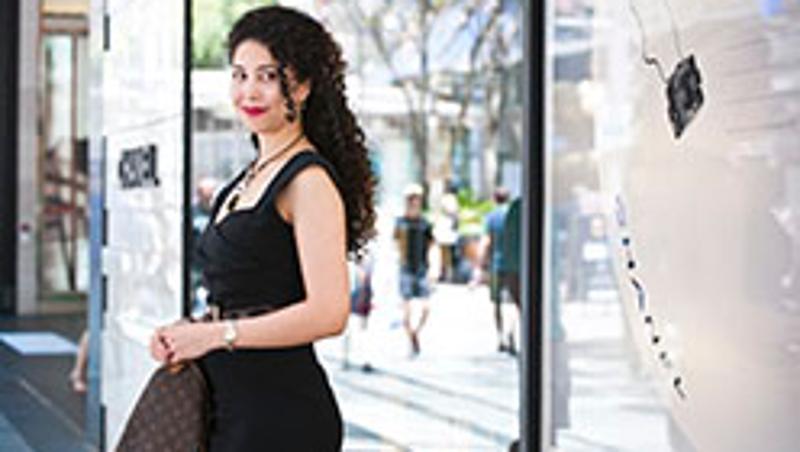
If you can't afford the real thing you can still get behind the virtual wheel of a Lamborghini or design your Rolls Royce Ghost's interior, thanks to free, high-quality apps, which have become the brand-building mainstay of luxury brands, a QUT researcher has found.
A sophisticated app that stimulates customers' senses is the marketing must-have for luxury brands, whether they are beauty products, cars, or hotels, says Dr Parisa Mahyari from QUT Business School who studied the motivation behind the apps developed by all three product categories for her PhD.
"Luxury brands have different motivations, depending on product type, but they all must be innovative, sophisticated, and be relevant to the brand," Dr Mahyari said.
"The success of a luxury app lies in its appropriateness for its audience, the details and how closely it reflects the brand's identity and DNA.
"Marketers of luxury brands have had to drop the idea that they communicate with an exclusive, niche market because the internet has brought their products to the mass market.
"They were slow to have even a website because websites were for the mass market. But now they have leapt into digital technology and lead the field with apps that offer existing and potential customers an engaging experience with the brand."
Dr Mahyari found luxury brands had a variety of motivators for investing heavily in developing exciting and engaging apps that people talk about.
"They use their app to: broaden their target market; create brand awareness; provide information or be available and close to customers anytime and anywhere. It depends on the category," she said.
"Luxury cars, for example, launch apps mostly as a brand-awareness exercise for the young generation. The Sports Car Challenge 3D app, for example, lets users choose their luxury car - Porsche, Bugatti, and Lamborghini - and get behind the wheel and race it.
"The Rolls Royce Ghost app is very popular with males from different age groups. It lets you design your car's interior and colour and is used by dealers."
For luxury beauty products, the key aspects are emotive, and image-building.
"Beauty product apps aim to engage the senses and be exciting. It's about being in touch with their customers' individual needs and personalities," she said.
"They offer apps in which you can upload your photo and then experiment with different make-up and colours. You can then save your new 'look' or send to others."
Dr Mahyari said high-end hotels used their apps to offer guests extra services.
"Their apps aim to make guests' life easier when booking or checking reservations," she said.
"Some have really interesting extras such as when travelling overseas you can get the app to tell the taxi driver where to take you in the local language.
"These apps will provide you with city guides from galleries and museums to restaurants and shopping venues; teach you a few local phrases; order room service or clearing; or report problems with the air conditioning.
"Overall a luxury app is all about the experience, top-notch presentation, details and the image it presents to existing and potential customers.
"It's about the unique message - conveying exclusivity while being available to broad audiences. It's a response to consumers' desire to have the luxury atmosphere in their hands through communicating the brand's tangible and intangible qualities."
High-res image of Dr Mahyari available from Flickr for media use.
Related articles:
Aussies cash in on $B apps industry
Student iPhone app measures up
Media contact: Niki Widdowson, 07 3138 2999 or n.widdowson@qut.edu.au


